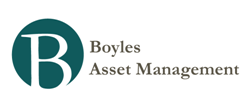Money and Finance
Link to: Ockham's Razor and the Market Cycle
- Links
Daniel Kahneman: ‘What would I eliminate if I had a magic wand? Overconfidence’ (LINK) Related book: Thinking, Fast and SlowChris Pavese's idea presentation on SeaWorld Entertainment (video) (LINK) Related book: Walt's Revolution!:...
- Links
Jason Zweig: Here’s a Tip: Buy More TIPS (LINK)Energy stocks aren’t the only investment taking a beating from the collapse in oil prices. Treasury inflation-protected securities have suffered as crude’s 50% decline erodes the chances of a meaningful...
- Links
Q&A with Guy Spier about his book, The Education of a Value Investor (LINK) Buffett’s Private Analysis of Geico in 1976: ‘Extraordinary’ But ‘Mismanaged’ [H/T Lincoln] (LINK) Aswath Damodaran on corporate break-ups, using EBay and PayPal...
- Hussman Weekly Market Comment: We Learn From History That We Do Not Learn From History
Link to: We Learn From History That We Do Not Learn From History “We learn from history that we do not learn from history.” Georg Wilhelm Friedrich Hegel Last week, Investors Intelligence reported that bullish sentiment surged...
- Hussman Weekly Market Comment: The Journeys Of Sisyphus
Link to: The Journeys of Sisyphus As we discussed several months ago, that hope of succeeding rests on what economist J.K. Galbraith called “the extreme brevity of the financial memory.” Part of that brevity rests on ignoring the forest for the trees,...
Money and Finance
Hussman Weekly Market Comment: Ockham's Razor and the Market Cycle
Link to: Ockham's Razor and the Market Cycle
We increasingly see investors believing that history is no longer informative, and that the Federal Reserve has finally discovered how to produce perpetually rising markets and can intervene without consequence to support the markets and the economy indefinitely. Maybe it’s no longer true that valuations are related to subsequent returns. Maybe, contrary to all historical experience, reliable measures of valuation that have had a 90% correlation with actual subsequent market returns can now remain at double their historical norms forever, thereby allowing capital gains to be unhindered by any future retreat in valuation multiples as fundamentals grow over time. It’s just that one must also rely on valuations never retreating, because even if earnings grow at 6% annually indefinitely, and the CAPE simply touches a historically-normal level of 16 even 20 years from today, the total return on stocks, including dividends, would still be expected to average only 5% annually over that horizon. That’s just arithmetic.
Investors should also note the following. At present, the most historically reliable valuation measures average more than 110% above their pre-bubble historical norms. Secular bear market lows don’t occur very often, but when they do, valuations typically average about 50% of pre-bubble norms. Here’s some arithmetic. Assuming constant 6% annual growth in nominal fundamentals, if the stock market was to experience a secular bear market low 25 years from now, the S&P 500 Index would be unchanged from present levels. Checking those numbers is good practice [1.06 * (0.5/2.1)^(1/25) = 1.00]. Market valuations leave no margin for error, even over the long-term.
Meanwhile, nothing even in recent market cycles provides any support to the assumption of permanently elevated valuations. The only support for it is the desire of investors to avoid contemplating outcomes the same as the market suffered the last two times around. “This time is different” requires a lot of counterfactual assumptions. Ockham’s razor would suggest a nice shave.
- Links
Daniel Kahneman: ‘What would I eliminate if I had a magic wand? Overconfidence’ (LINK) Related book: Thinking, Fast and SlowChris Pavese's idea presentation on SeaWorld Entertainment (video) (LINK) Related book: Walt's Revolution!:...
- Links
Jason Zweig: Here’s a Tip: Buy More TIPS (LINK)Energy stocks aren’t the only investment taking a beating from the collapse in oil prices. Treasury inflation-protected securities have suffered as crude’s 50% decline erodes the chances of a meaningful...
- Links
Q&A with Guy Spier about his book, The Education of a Value Investor (LINK) Buffett’s Private Analysis of Geico in 1976: ‘Extraordinary’ But ‘Mismanaged’ [H/T Lincoln] (LINK) Aswath Damodaran on corporate break-ups, using EBay and PayPal...
- Hussman Weekly Market Comment: We Learn From History That We Do Not Learn From History
Link to: We Learn From History That We Do Not Learn From History “We learn from history that we do not learn from history.” Georg Wilhelm Friedrich Hegel Last week, Investors Intelligence reported that bullish sentiment surged...
- Hussman Weekly Market Comment: The Journeys Of Sisyphus
Link to: The Journeys of Sisyphus As we discussed several months ago, that hope of succeeding rests on what economist J.K. Galbraith called “the extreme brevity of the financial memory.” Part of that brevity rests on ignoring the forest for the trees,...

